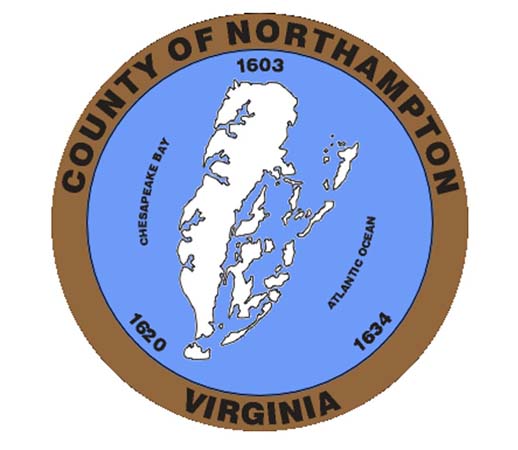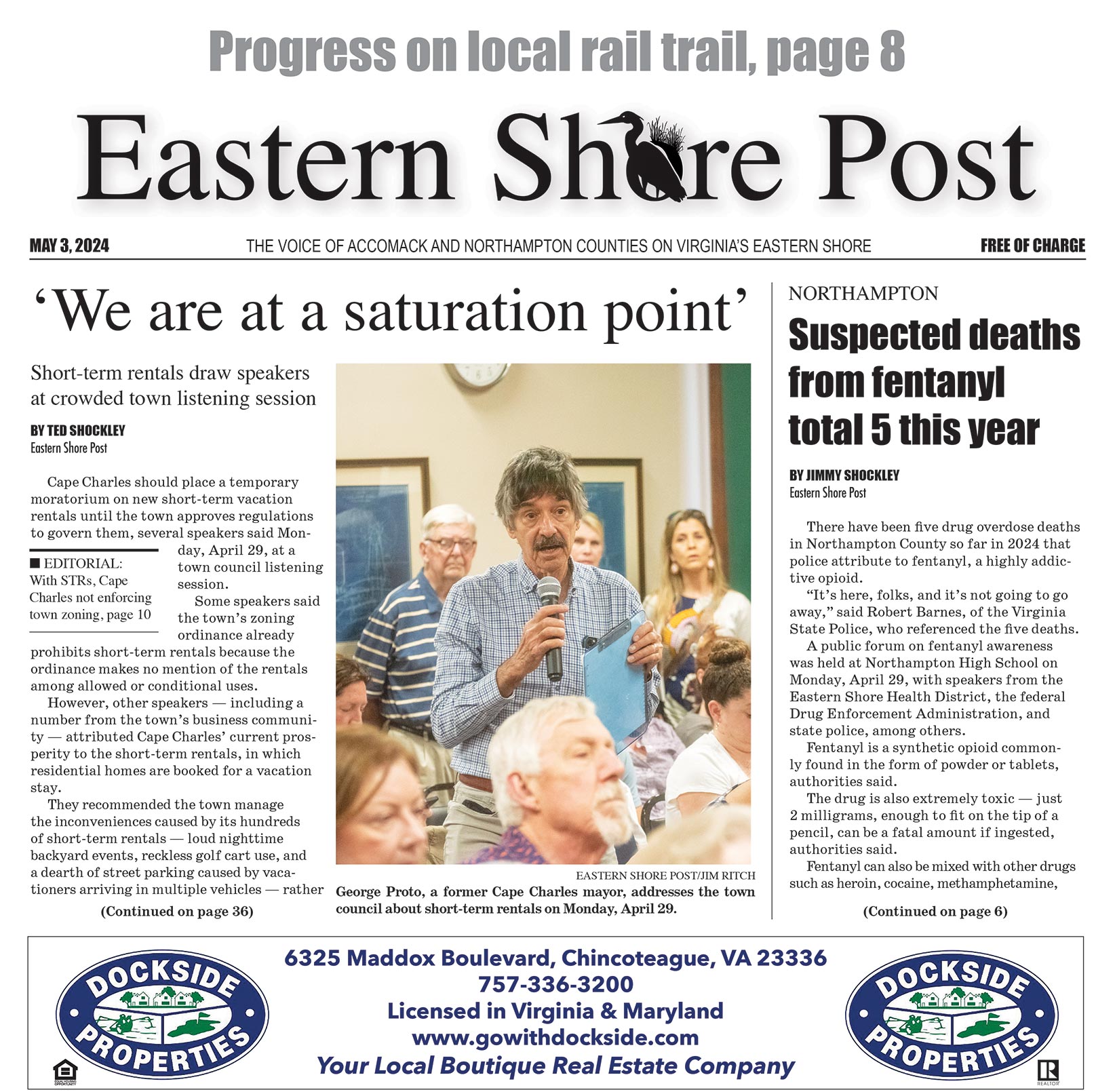BY ARTHUR UPSHUR, Guest columnist —
We recently had another great example of local citizen action on the Eastern Shore.
There was a vote by the Northampton Board of Supervisors on a rezoning to allow a new development near Cedar Grove, at the southern end of the county.
The applicant was requesting a zoning change for a portion of a parcel that included a small mobile home park as well as a strip of land currently zoned agricultural-rural Business.
Opponents organized petitions (more than 550 signatures at last count), sent dozens of letters and emails, and packed the meeting room.
Speakers at the public hearing cited the precedent this change might set that could weaken our zoning protections, or how it represented further gentrification of our community, or if it was good practice to allow zoning changes like this without significant proffers from the developer.
Several expressed outrage that we were having to do this again to oppose a developer.
The public speakers were quite a show of the diversity of the Shore. Most were not exactly polished speakers.
Several clearly did not expect to speak but felt compelled to say something.
Frequently there was applause despite the best efforts of Chair Betsy Mapp to limit it. It was a formidable demonstration of community opposition to the proposal.
I do not want to comment on the decision of the board of supervisors. There are reasons to support this and reasons to oppose it and I think we can hope that the board made a good decision.
But what I do want to comment on was how that decision was made, and what a failure it was in how the board communicated to the public.
Mapp seemed to understand the optics best. She thanked folks for coming and waiting, and she showed great patience and respect while holding everyone to the three-minute comment rules.
But I felt that her colleagues failed to respect the citizenry in attendance.
It really is a big deal for folks to give up an evening to come to a board of supervisors meeting and speak to the board.
Many of these folks were nervous speakers with handwritten notes on slips of paper.
All of them made sacrifices because they thought it was important that they speak up.
They thought their opinions would be respected and they would be listened to by the board.
All those letters and emails took time to write and organize and the writers thought they would be carefully read and discussed by the board.
They hoped the board would carefully consider their arguments before making their final decision.
But none of that respect for the public input was evident.
Supervisor Dixon Leatherbury questioned whether the current zoning might be wrong by showing older maps where the area was listed as a hamlet.
But this was confusing since only the current zoning map can legally be used.
Then Supervisor John Coker gave a speech about his own opinions on the development. Coker then made a motion that was already prepared to approve the proposal as revised and recommended by the planning commission.
Leatherbury seconded the motion. Everyone but Mapp voted in favor and it was over.
It was an incredibly insensitive display — no comments about or thanks for all that public input, no thoughtful debate between board members concerning the public concerns raised by so many.
The fact that the motion was already written implied that Coker never intended to have any of the public hearing input impact his position.
Two supervisors were completely silent throughout. That four of the supervisors voted in favor with no debate or further discussion begged the question of whether they paid any attention to the public input at all.
It was incredibly disempowering for everyone who tried to participate in the process. One might almost call it a rude response.
Most left feeling like they had wasted their time because this board was not interested in listening to input from anyone. That is a sad conclusion for a public hearing indeed.
I believe our civic engagement is a precious thing. While the process is messy and frequently annoying, listening to the citizenry is always a good thing. Lecturing or correcting the citizenry is rarely good policy.
But an engaged citizenry is a fragile thing. It can be discouraged by ego and cronyism. It can be damaged when elected officials ignore local opposition without even trying to take time to find compromises that better reflect the public concerns or at least to make an honest effort to convince the public to change its opposition.
The Northampton Board of Supervisors failed us on this issue. I hope they can be better next time.
— The writer lives in Northampton County.



